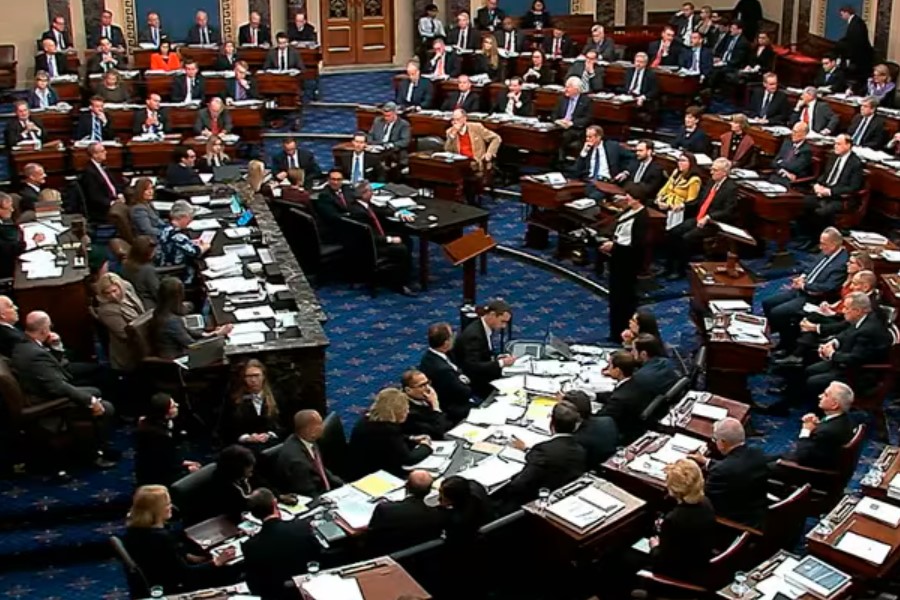On July 10, Senate Republicans blocked a Democratic bill aiming to reinstate Roe v. Wade as federal law.
The brief, two-page bill did not seek to alter any laws but intended to express a “sense of Congress” in support of protecting abortion access and reinstating Roe v. Wade.
This landmark decision, which had established a national right to abortion, was overturned by the Supreme Court two years ago, returning the issue to the states.
“Senate Republicans must answer a very simple question: Do they believe that women should be trusted to make their own health care choices—yes or no?” Senate Majority Leader Chuck Schumer (D-N.Y.) said during his floor remarks hours before the vote.
Mr. Schumer acknowledged that the vote wouldn’t mark the end of the abortion debate, but emphasized that getting members on record was “an important step forward.”
Ultimately, the measure was blocked in a 49–44 procedural vote.
In recent months, Democrats have highlighted reproductive issues ahead of the November elections.
To commemorate the anniversary of the June 2022 Supreme Court ruling in Dobbs v. Jackson Women’s Health Organization, which overturned Roe v. Wade, Senate Democrats introduced several measures addressing reproductive issues, including abortion, contraception, and in vitro fertilization.
Those bills were also shot down by Republicans, who accused Democrats of political posturing.
Commenting on the latest measure on June 18, Sen. John Kennedy (R-La.) called it a “messaging bill,” while Sen. Josh Hawley (R-Mo.) criticized it as an attempt to “impose a one-size-fits-all policy on the whole nation.”
Senator Susan Collins (R-Maine), known for her alignment with Democrats on social issues, was among only two Republicans—alongside Senator Lisa Murkowski (R-Alaska)—to back the latest measure. When questioned about her stance before the vote, Ms. Collins said that she believed the Reproductive Freedom for All Act, which she co-sponsored, was “a far better bill.”
Instead of simply advocating for codifying Roe v. Wade, the measure goes beyond by reinstating protections outlined in the 1973 ruling, ensuring access to abortion until fetal viability and in cases endangering the mother’s health. The bill would also prevent states from imposing an “undue burden” on a woman’s ability to obtain an abortion and establish a right to obtain and use contraception.
Sens. Tim Kaine (D-Va.) and Kyrsten Sinema (I-Ariz.), along with Ms. Murkowski, have also backed the bill.
“Congress must restore women’s rights to make personal health care decisions,” Mr. Kaine said in a Feb. 9 statement.
“In the wake of the Dobbs decision, we have seen just how necessary Roe v. Wade was, which is why I’ve worked with my colleagues to find common ground on this bipartisan compromise that would restore Roe’s protections,” he added.
While Democrats have prioritized abortion as a central campaign issue, Republicans have generally avoided focusing on it.
The GOP’s 2024 party platform, unveiled earlier this week, mentions abortion only once, affirming its stance against “late-term abortion.” The party also expressed support for allowing states to determine their own policies on the matter, aligning with former President Donald Trump’s stance.
Share your thoughts by scrolling down to leave a comment.













